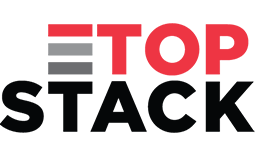6 Tips for Spring Cleaning Your Work Life

As the days grow longer and the air feels fresher, it’s the perfect opportunity to declutter our spaces and take a renewed look at our world. Consider these practical tips and strategies to give your work life a good spring cleaning. Grab your metaphorical broom and let’s sweep away the cobwebs of winter stagnation to make room for growth and productivity.
Tidy Your Files (Physical & Digital)
From dusty filing cabinets to cluttered desktop folders, take time to organize your workspaces. Make finding your files a breeze by purging unnecessary documents, giving your digital files a consistent naming convention, and creating efficient folder structures.
Wipe Down All Tech Surfaces
It’s not just about tidying up, but also about keeping things running smoothly. Grab those microfiber cloths and give your screens, keyboard, mouse, and most importantly, your phone a good wipe down. Dust and grime impact your tech’s lifespan and your health.
Clear Out Office Clutter
A clutter-free environment fosters creativity and reduces stress. Consider recycling outdated tech, scanning physical files then disposing of the originals, or donating excess office supplies and furniture. Don’t forget to clean out the company fridge!
Scrub Your Online Profiles
Take a moment to review your social media profiles, LinkedIn, and portfolios. Update your bio, add recent accomplishments, and ensure your online persona reflects the professional image you want to convey. A polished online presence can make a world of difference.
Refresh Your Network
Reach out to old contacts, schedule virtual coffee chats, and explore new networking opportunities. Spring is a time for growth and renewal, and expanding your network can open doors to exciting career prospects and collaborations.
Dust Off Your Resume
Last but certainly not least, it’s time to give your resume a spring cleaning! Review your resume with fresh eyes, updating your skills, experiences, and accomplishments. Tailor it to reflect your current career goals and aspirations. A well-crafted resume is your ticket to landing that dream job.
Are you ready for a fresh start in your career? Now is the time to take action!
Contact us to get connected with a top-notch recruiter.

















